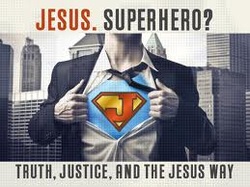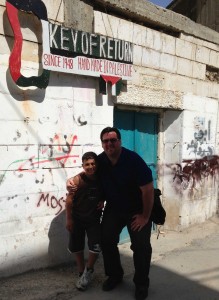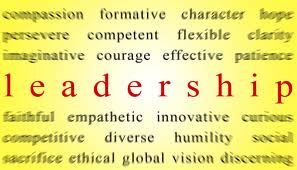
 Summer approaches, which makes it superhero season. Why not use the appetite our youth have for these summer blockbusters to teach a lesson in ethics? I am a big believer that the key to being a strong leader is knowledge, and for our kids that means teaching them the stories behind all the pop culture they are consuming. Here’s a great piece that ran in the New Statesmen, about how the comic book industry treated the same people who created Superman and all his fellow mega-stars, which basically amounts to paying them nothing and then trying them up in court for years while they tried to get a fair share for their creation. While superheroes are the theme for this piece, it’s really a lesson in business ethics. What should have happened? What would have been fair? What decision would they have made? Is there a place in business to be gospel-centred, when profits drive decisions? There’s a reason why business schools have started focusing on moral behaviour. Strong, honourable leaders don’t just happen. http://www.newstatesman.com/culture/2013/05/penury-swindlers-and-american-way-capitalist-legacy-superheroes
0 Comments
Too often our world is shaped by what we see on TV and in the movies, and here’s one dangerous example: what does drowning really look like? In fact, it’s nothing like the thrashing on the surface that is so often depicted on screen. It’s much, much more quiet which makes it hard to spot. In fact, according to this article now making rounds online, a lot of children drown within earshot and even sight of their parents or other family members because it’s hard to tell when someone is in trouble. Here’s the article that tells you what to watch for, and debunks the signs of drowning. Everyone who is close to water should read it. You might save someone’s life.
http://www.slate.com/articles/health_and_science/family/2013/06/rescuing_drowning_ children_how_to_know_when_ someone_is_in_trouble_in_the.html We have a complicated relationship with power. We seek it for ourselves, but then, depending on the level of responsibility, we give it away. Sometimes we give it away to the wrong people and we passively let them run wild with it.
Recently, we have another tragic example of how power can go horribly wrong, with the suicide of Rehtaeh Parsons. Rehteah, as most of you will know, was a teenager in Nova Scotia, who killed herself. Her family says she was raped by a group of boys who then sent a graphic picture of her to all their friends. She died because some boys she knew used their power to assault her. The people in power didn’t step in to help her when she was bullied. And then they went one step further and shamed her before everyone she knew. Many of her peers used their power to torment her with these pictures for nearly two years. And the people who might have stopped it didn’t do enough. In the end, more than anything else, it was a perversion of the power we all possess that led to the death of a promising young woman and destroyed a family. I suspect that more than a few of us wanted to believe that what happened in Steubenville, Ohio – with its details so similar – was the product of small-town America where too much power was given to a team of football players. In fact, we have been reminded, tragically, once again, that in any place and among any people, power can be horribly misused. When I was in seminary, my father gave me an older book by Martha Ellen Stortz about leadership and power which has stuck with me. In the book, she urges leaders to think about three kinds of power and the role they can play for good and for bad. I thought of this book when I heard about Rehtaeh and considered the story of Jesus’ post-resurrection appearance in Galilee in John’s epilogue (John 21:1-19). Jesus clearly wanted to make sure that the disciples got the message. He appears before them again – this time he tells them how to catch fish when their nets come up empty. They listen and it works. The disciples are overjoyed to see him, once they make the connection. But Jesus is emphatic with his reason for coming, so much so that he poses the question to Peter, not once but three times: “Do you love me? he asks. Yes, Peter says. “Then feed my sheep.” “Do you love me?” Jesus asks again. You know that I love you, Peter says. “Tend my sheep,” Jesus tells him. One more time he puts the questions to him, answering: “Feed my sheep.” And after this, the gospel tells us, Jesus said to the disciples, succinctly: “Follow me.” Feed my sheep. Tend my sheep. Follow me. Three simple directions to the disciples. Three simple directions for us on how to lead on behalf of Jesus in the world. But what’s the danger here? We know it too well: if we are to tend and feed the sheep then are we not placed above the sheep? Aren’t we in charge? In her book, Stortz connects the three kinds of power both to our understanding of the triune God and how they impact our relationship to one another. First she discusses the concept of “power over,” or coercive power. It is not hard to see where that power goes wrong: in politics and in our personal lives, in bullying and in domestic violence. But power over also channels the parent-child relationship, the doctor-patient relationship, and as Stortz observes, it also defines our relationship to God: the one in which we are given the direction, through Jesus, to “Follow me.” God says to us: here are the rules of the gospel; here is prescription for the good life. The difference is that unlike the parent who eventually sees their child reach adulthood, God allows for us to follow those rules in our own way, as they call to each of us from within. That is the second kind of power that Stortz describes: “the power within,” the power of the Holy Spirit. But this power isn’t just about the outward ability to light up a room; it is also about the power that comes from a strong inner core, the power to get people to listen. This kind of power – the one that comes from within – can speak up against bullying, or step in when someone is being hurt and set events on a different course. But it may also be extremely dangerous, as we have seen so many times: Charismatic power can hold sway over the mob so that no one speaks up when horrible acts are committed, and silence is kept afterwards. We see this power all the time in social media – one strong voice frames the conversation of an entire group. This is the power that Jesus speaks of when he says: feed the sheep. He is calling the disciples to lead people by inspiring them, by challenging them. Jesus also tells the disciples: tend the sheep. This relates to the third kind of power, the third type of leader that Stortz describes: “the power with,” or what she calls coactive power. The most difficult kind of leadership to practice. It is not about control, and it is not about being the most alluring voice for change in the room. It’s how we should understand Jesus as the third point in our trinity: the God who walked among us and with us, who saw what we needed and what we were asking for and worked with us to try to make that happen. “Power with,” as Stortz writes, could also be called strength in numbers – “It is usually manifest in people who have far greater power together than any of them has individually.” Sheep, in the end, travel in flocks, and the strength of the flock depends on the health of the individual sheep. To “tend the sheep,” as Jesus urges the disciples, requires first an understanding of them that cannot be learned by giving orders from above, or flowing speeches from on high. It requires listening and caring and common ground. The point that Stortz was making – and Jesus as well – is that all three types of leadership are necessary, but we must be careful to use them wisely and as the situation demands. The one that gets the least use, unfortunately, is the one represented by Jesus: the power with. On April 13, 2013 The Globe and Mail posed the question on its front page: “Did we fail Rehtaeh?” But we already know the answer. And it should make us uncomfortable. Too many times, we fail to act as a community, to lead as a group. We leave it up to the police to exercise their “power over” with the law. But that didn’t happen. We assume someone better, with natural abilities, will take charge; someone of “power within” will fill the silence when we do nothing. That didn’t happen. A promising young girl and her family were left alone to struggle. This happens all the time. When I hear these stories, it makes me afraid for my own kids and worried for the society we live in. What messages aren’t they getting? What lessons aren’t they hearing? In the end, perhaps, we have failed to teach them that the most powerful act of all is to respect one another. That the most powerful people think about who they are in the world, and what their actions do to, and for, others. In our gospel, Jesus is trying so hard to get the disciples to this place of understanding, to open their eyes. To open our eyes. Feed the sheep. Tend the sheep. Follow me. Jesus is calling them to be powerful. May we both hear and teach the same lesson.  After an intense and interesting study tour with Waterloo Lutheran Seminary, and a fair amount of catching up, I am grateful to be back. Perhaps one of the most striking images from our trip together was the miraculous nature of the people we met. I met an Arab-Palestinian youth from Bethlehem named Fadi. He was born on the wrong side the separation wall. The youth on the other side of the wall enjoy life comparable to Canadians the same age. Fadi lives with very little that brings laughter and joy. However, he does live with too much tension: the kind we can’t even imagine here in Canada. The day that we met with him Israeli fighter jets flew overhead towards Syria. The military tension was starting to boil over and everyone knew it. Their political, religious, social, economic, and military realities are so complicated and heated that one can’t help wonder how they have any hope at all. And so I asked this young boy, “Do you wish you were on the other side of this wall?” And this young Fadi, between the ages of my own two sons, said, “No. I wish the wall was not there. Maybe one day. But for now, I have my family and my friends and we have fun. Even on this side.” Miraculous things happen all around us through the lives of people who do something to honour and add to the life of another person. Don’t wait for the miracle to come to you. Live the miracle that God is working around you right now. It is only by living it that we will become a part of it for others. Just like Fadi was for me. Just like Jesus was for so many throughout the gospel. Just like we are for others. |
Joel CrouseArchives
December 2016
Categories |

 RSS Feed
RSS Feed
